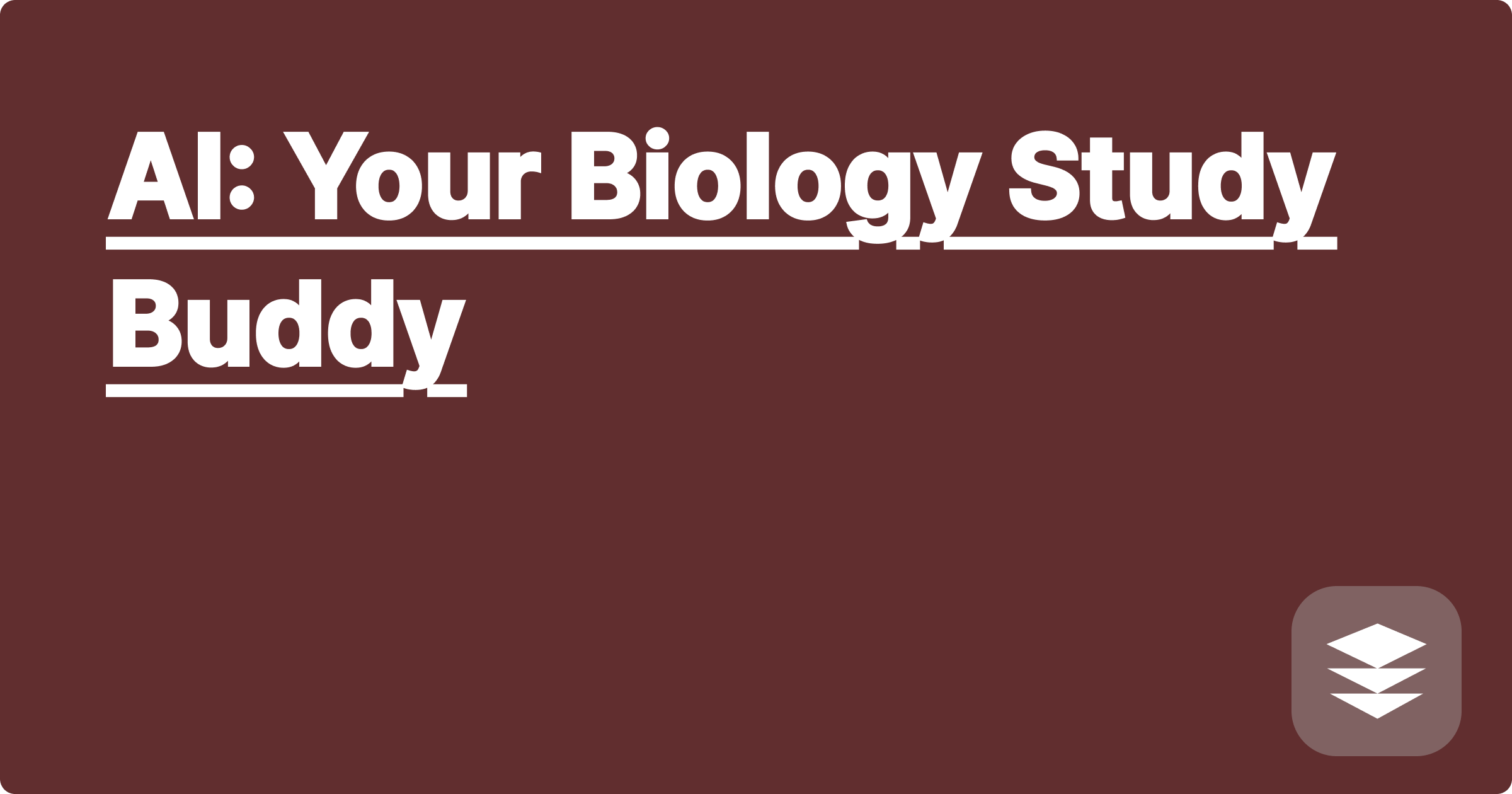
The sheer volume of information in STEM fields, particularly biology, presents a significant challenge for students and researchers. Staying abreast of the latest discoveries, grasping complex concepts, and effectively applying this knowledge requires significant time and effort. Artificial intelligence offers a powerful set of tools to navigate this information overload and enhance learning and research processes. AI can act as a personalized tutor, a research assistant, and a powerful tool for data analysis, ultimately empowering STEM students and researchers to achieve their academic and professional goals.
This emerging paradigm shift in how we interact with information matters deeply for STEM students and researchers. By leveraging AI, students can personalize their learning experience, focusing on areas where they need the most support. Researchers can accelerate their work by automating tedious tasks, analyzing complex datasets, and uncovering hidden patterns. Embracing AI tools isn't just about keeping up with the latest technological advancements; it's about unlocking new levels of efficiency, understanding, and innovation in the biological sciences.
Biology, as a field of study, is characterized by an ever-expanding body of knowledge encompassing intricate processes, complex interactions, and vast amounts of data. Students face the daunting task of memorizing intricate pathways, understanding complex biological mechanisms, and applying this knowledge to solve problems. Researchers grapple with analyzing large datasets, identifying relevant information from scientific literature, and formulating testable hypotheses. Traditional study methods often fall short in addressing these challenges, leading to information overload, inefficient learning, and slow research progress. The complexity of biological systems, coupled with the rapid pace of new discoveries, necessitates the adoption of innovative tools and techniques to enhance learning and research.
AI-powered tools like ChatGPT, Claude, and Wolfram Alpha offer a transformative approach to learning and research in biology. These tools can be used to generate summaries of complex topics, answer specific questions, provide explanations for difficult concepts, and even create practice quizzes. ChatGPT and Claude, for example, excel at natural language processing, allowing users to engage in interactive conversations about biological concepts. Wolfram Alpha, with its computational prowess, can perform complex calculations, analyze data, and provide access to a vast knowledge base of biological information. By integrating these AI tools into their workflow, students and researchers can streamline their learning and research processes, achieving greater efficiency and deeper understanding.
To begin using AI tools like ChatGPT for biology studies, start by formulating a clear and concise question or prompt. For example, you might ask about the Krebs cycle, the role of a specific protein, or the mechanisms of DNA replication. Once you have your question, input it into the AI tool. The AI will then process your query and generate a response, providing relevant information, explanations, or examples. You can further refine your understanding by asking follow-up questions, requesting clarification, or exploring related concepts. This interactive process allows you to delve deeper into the subject matter, building a more comprehensive understanding.
To use Wolfram Alpha for biological calculations or data analysis, input the specific formula or dataset you want to analyze. For example, you can input a DNA sequence to determine its composition or calculate the Hardy-Weinberg equilibrium for a given population. Wolfram Alpha will then process the input and provide the results, often accompanied by visualizations or further explanations. This computational power allows you to quickly analyze data, explore different scenarios, and gain valuable insights.
Consider a student studying cellular respiration. They could ask ChatGPT, "Explain the Krebs cycle and its significance in energy production." The AI would then provide a detailed explanation of the cycle, including the various steps, the molecules involved, and the net energy yield. Alternatively, a researcher could use Wolfram Alpha to analyze gene expression data from a microarray experiment. By inputting the data into Wolfram Alpha, the researcher could identify differentially expressed genes, perform statistical analysis, and generate visualizations to understand the underlying biological processes. Another practical application could involve using ChatGPT to generate practice questions for an upcoming exam on genetics. By providing the AI with the relevant topics, the AI could generate a series of questions that test the student's understanding of the material.
To effectively leverage AI in biology studies, focus on developing clear and specific questions. This will help the AI provide more relevant and accurate information. Don't be afraid to experiment with different AI tools and platforms to find the ones that best suit your learning style and research needs. Remember that AI tools are meant to augment, not replace, traditional learning methods. Use them in conjunction with textbooks, lectures, and lab work to build a comprehensive understanding of the subject matter. Critically evaluate the information provided by AI tools, cross-referencing it with other sources to ensure accuracy. Finally, actively engage with the material by asking follow-up questions, exploring related concepts, and applying the knowledge to real-world scenarios.
To conclude, AI offers a powerful suite of tools for enhancing learning and research in biology. By understanding the capabilities of these tools and integrating them effectively into their workflow, students and researchers can unlock new levels of understanding, efficiency, and innovation. Start exploring these AI tools today and discover how they can transform your biology studies and research endeavors. Embrace the future of learning and research by incorporating AI into your academic toolkit.
AI Homework Help: STEM Made Easy
Ace STEM Exams: AI Study Guide
AI for Lab Reports: Data Analysis
AI: Your Physics Homework Solver
Engineering AI: Boost Your GPA